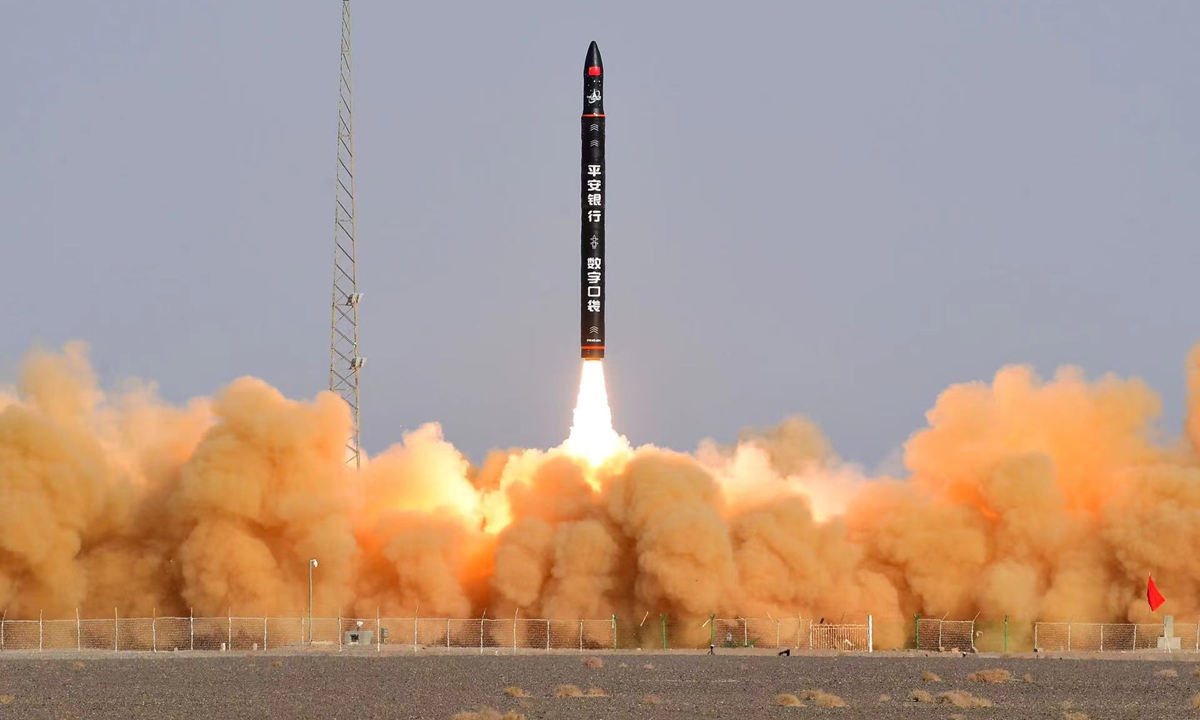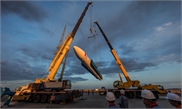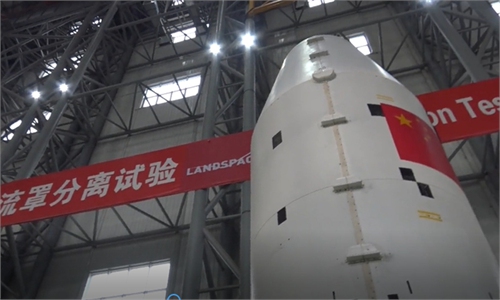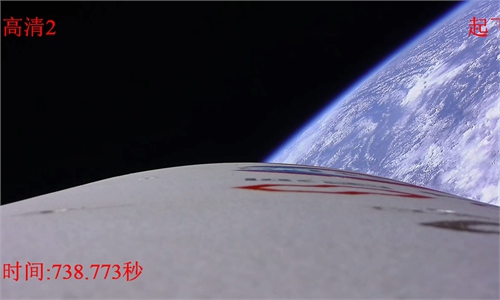
Chinese private rocket firm Galactic Energy completes second orbital launch at 12:12 pm on December 7. Photo: Courtesy of Galactic Energy
Chinese private rocket firm Galactic Energy successfully completed its second orbital launch on Tuesday, accelerating domestic commercial rockets' industrialization.
The successful launch showed that China's private commercial space sector is becoming technologically mature and increasingly capable of handling satellite launch missions, analysts said.
The Beijing-based start-up launched the second of its self-developed carrier rockets named Ceres-1 from the Jiuquan Satellite Launch Center in Northwest China's Gansu Province on Tuesday, sending five commercial satellites into 500-kilometer sun-synchronous orbit (SSO).
The launch was the first consecutive success for a domestic private rocket firm, and also the first time of achieving multi-satellite commercial launches with one rocket, enabling the Ceres-1 to be a pioneer in achieving the next phase of commercial launch delivery.
In November 2020, Galactic Energy successfully launched the first Ceres-1 rocket and put a satellite into orbit.
Ceres-1 is a four-stage launch vehicle, with the first three stages using solid engines. The fourth is an advanced liquid upper stage. It is committed to providing high-quality, cheap and fast launch services for low-orbit small satellites.
"Although Galactic Energy was the first domestic private firm to achieve 500-kilometer SSO, it is not an issue of getting into orbit or how high the orbit is, that is key to realizing the genuine industrialization of commercial rockets. It is, instead, the ability to achieve the continuous and stable launch of rockets and large-scale, low-cost rocket production," said Liu Baiqi, CEO and founder of Galactic Energy.
However, domestic private firms still need to solve the orbital issue, as the ability to successfully send a carrier rocket to an orbital altitude, which has a high technological threshold, has become the real test in the burgeoning commercial space sector.
Prior to Galactic Energy's first successful orbital launch last year, another major industry player iSpace launched its self-developed carrier rocket in 2019, sending satellites into orbit, marking a major progress for China's commercial space industry as it was the first private space firm to do so.
But it met two consecutive failures this year. In August, it failed to send a payload to its planned orbit after launch, following the first one in February.
"Failures are not unusual in the private commercial sector, especially in the initial phase," Huang Zhicheng, a senior expert on aerospace science and technology, told the Global Times on Tuesday, noting that the industry's morale is a bit low after iSpace's failed launches this year.
"But today's successful launch could boost confidence and morale, and inspire industry peers to carry on, because it is a milestone for a private firm to achieve two consecutive orbital launches," Huang said.
He added that only a few private firms in the world have accomplished this task, including four or five from the US.
Galactic Energy plans to conduct its third launch of the Ceres-1 rocket in April next year, the company told the Global Times.
In addition to the solid-engine vehicle, the firm is also pushing ahead with research and development of the liquid propellant rocket. It has successfully completed the 50-ton liquid oxygen/kerosene engine assembly work.




